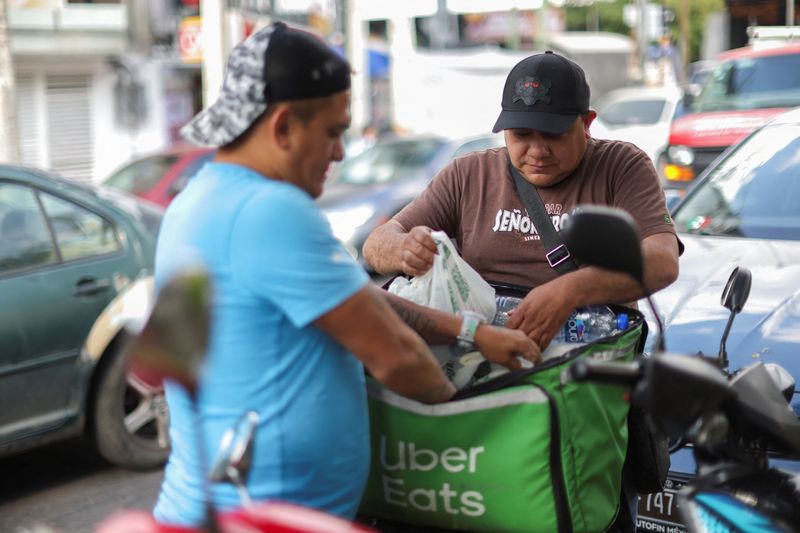By Diego Oré and Aida Pelaez-Fernandez
MEXICO CITY (Reuters) -Mexico's lower house on Tuesday approved a reform that seeks to regulate labor conditions for delivery workers and drivers working for apps such as DiDi, Rappi and Uber (NYSE:UBER) by ensuring access to social security and a Christmas bonus among other benefits.
The general reform passed unanimously with all 462 lawmakers present voting in favor following a two-hour debate. Deputies then went on to discuss the law's particular terms before it passes to the Senate, which must vote on any changes.
The ruling Morena party and its allies, who won a landslide victory in the June general election, enjoy a large majority in both houses. They have since sped through a number of reforms proposed under the current and former administrations.
The reform would add Mexico to the ranks of countries such as Chile and Spain that already regulate work through digital platforms, guaranteeing basic labor rights such as a minimum wage and social security.
"We celebrate this great legislative step that combines flexibility and labor rights," Labor Minister Marath Bolanos said on X after the approval, saying the law will provide certainty for the delivery apps' business model.
Around 658,000 people are employed across Mexico on digital platforms, according to tax authority data. Of these, some 41% earn over the minimum wage.
Opposition Institutional Revolutionary Party (PRI) lawmaker, Ana Isabel Gonzalez, said the reform should include safeguards protecting from violence against women, such as cracking down on the creation of fake profiles.
The legislation would ensure that workers who earn at least a minimum wage on the app (around $414 per month starting in 2025) have the right to unionize and access to benefits such as social security, accident insurance, pensions, maternity leave, the right to receive company profits and a Christmas bonus.

Workers earning under minimum wage would not have access to all the benefits but be protected in case of work-related accidents.
President Claudia Sheinbaum sent the proposal to lawmakers early December and the law was fast-tracked to a plenary vote ahead of Congress' Christmas recess on Dec. 15.